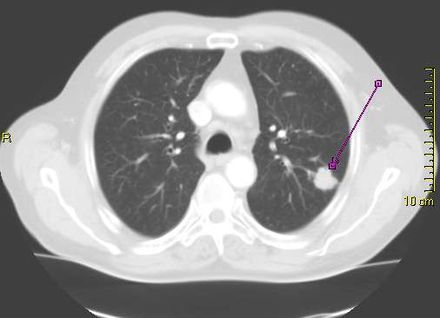Lung Cancer / 05.02.2025
Importance of Early Detection in Treating Squamous Cell Carcinoma Lung Cancer
One of the leading causes of cancer-related deaths worldwide is lung cancer. Among the various types of lung cancer, squamous cell carcinoma is a common type that usually develops in the central part of the lungs, commonly in the bronchi, and is majorly caused by smoking. Though any type of cancer diagnosis can be overwhelming, early detection can be a crucial factor as it relates to treatment options and overall survival rates. Let's learn about the role early detection plays below.
Why is early detection important?
No one likes to think of cancer, not to mention getting tested for it. However, when it comes to this type of cancer, early detection increases the odds of a successful treatment. Let's find out why:- More treatment options: When this cancer is diagnosed early, patients have more options available, such as radiation, targeted therapy, and surgery. When it is detected at an advanced stage, the treatments are often limited to immunotherapy and chemotherapies, which might not be as effective in removing the disease.
- Increased survival rates: Early-stage lung cancer has a better prognosis than advanced-stage diseases. According to research, the five-year survival rate of cancer that has not spread beyond the lungs (localized cancer) is around 63% as against 7% when it has spread to distant organs. Catching squamous cell carcinoma early can mean the difference between effective treatment and a tougher battle.
- Better quality of life: There is no doubt that cancer treatment can be quite tough. However, when this cancer is diagnosed early, the treatment is usually less aggressive, resulting in fewer side effects and a better overall quality of life.





























